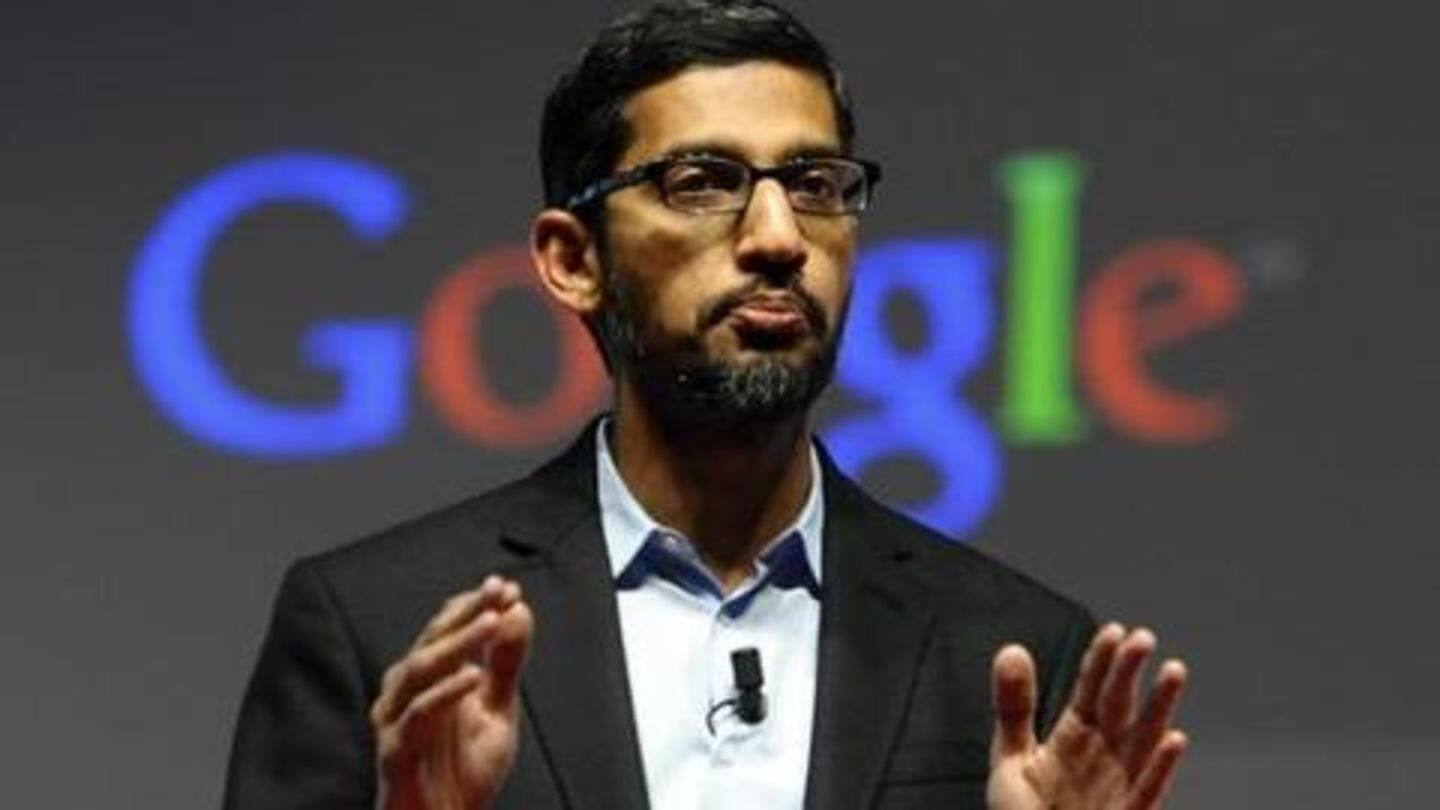
Sundar Pichai's Congressional hearing: 5 questions US lawmakers could ask
What's the story
After failing to testify at September's Senate Intelligence Committee, Google CEO Sundar Pichai is finally set to appear before US lawmakers.
Today, Pichai will testify before the House Judiciary Committee in a hearing focusing on transparency and Google's data collection, use, and filtering practices.
As such, he could be facing some tough questions, touching a range of controversial topics.
Here are the details.
Issue #1
Alleged case of political bias
Republicans, including President Trump himself, have accused Google of indulging in political bias, something that could be one of the topics touched in the hearing.
In recent months, they have alleged that the search giant has been suppressing voices of GOP-related sources.
"They are controlling what we can and cannot see," Trump said on the matter. "This is a very serious situation-will be addressed!"
Issue #2
Questions over Project Dragonfly, a move to re-enter China
Google left China in 2010, but now, it has prepped a special search engine, dubbed Project Dragonfly, to re-enter the country while complying with its strict censorship.
Though the engine has not been deployed, the move has raised several ethical questions, especially relating to the amount of data Google would share with the Chinese government. So, naturally, this could be another matter of questioning.
Issue #3
Data collection practices
Studies have shown that Google, which is the largest ad-platform in the world, collects more data than Facebook (thanks to eight of its services hosting over a billion users).
As such, the lawmakers could quiz Pichai about what data Google collects and how that information is used.
They might also ask if the search giant tracks users even when their location services are off.
Issue #4
Questions over data protection
With so much data in question, lawmakers may also ask what Google is doing to protect the privacy of its users.
As part of this, they might bring up security breaches suffered by Google+, the failed social media platform from the service.
Plus, the members might ask why the company took seven months to disclose the first vulnerability detected on the network.
Issue #5
Finally, the case of sexual harassment
Lastly, US lawmakers could also ask Pichai to throw light at Google's policies for tackling the cases of sexual harassment.
Google has been accused of not handling cases of sexual harassment appropriately, and just last month, thousands of Google employees staged a walkout demanding key changes in how sexual misconduct allegations are dealt with at the firm.